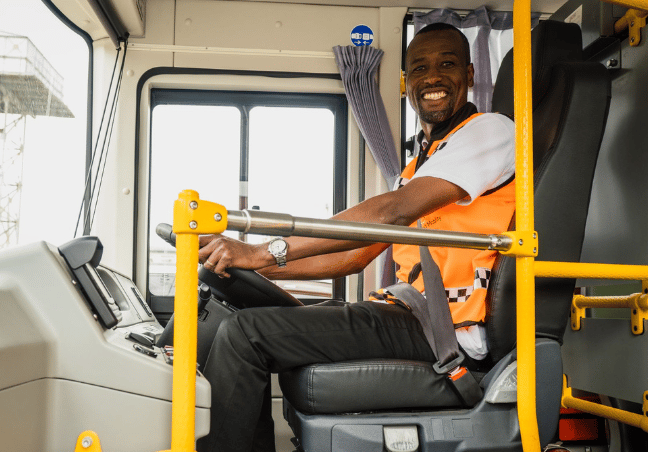- Mobility Rising
- Posts
- 30% of new 2-wheeler registrations in Nairobi are electric
30% of new 2-wheeler registrations in Nairobi are electric
Dear subscriber, this is a prototype. Please help us with feedback and tips. Just press reply.
Electric mobility company Ampersand secured the only funding deal in the sector in August, securing an estimated $10 million, data from The Big Deal Africa shows. That is 23% more than what EV companies raised in July, when total funding to the mobility sector stood at just $8.1 million. AfriCar Group also acquired Ivory Coast-based car price comparison company Koto. |
August’s funding landscape contrasts with July, during which 12 different companies got cash. Ampersand’s latest deal brings the total funding to the electric mobility sector to $129 million in 2025.
The funding received by Ampersand last month was in the form of equity, mainly from British International Investment (BII). In the previous month, a mix of equity, debt and grants was raised in the sector.
Our take: The latest funding will supercharge Ampersand’s plan to mainly focus on EV charging and battery swapping… Read more (2 min)
South African energy company STS Tech Group has launched a smart EV charging service for Cape Town. The company has built charging infrastructure for the city, which will use both grid-supplied electricity and solar power. STS says the smart charging service will supply solar power to charging stations during the day and the grid when supply from solar gets depleted. |
Charging companies across Africa are building solar power units to power EV charging during the day and store excess energy for use at night. This is helping to reduce the cost of energy and guarantee supply during power cuts.
Solar photovoltaic and battery costs have fallen by about 90% in the last decade. The price decline will likely continue, boosting further investment in solar by EV charging companies on the continent in the coming years.
Our take: Solar energy is not a total replacement for grid power supply. Both sources can be utilised effectively for reliability and cost-effectiveness… Read more (2 min)
Kenya’s EV sector must embrace localisation to scale, says Tobias Alando, CEO of the Kenya Association of Manufacturers (KAM). Already, 30% of new two-wheeler registrations in Nairobi are electric, showing strong demand. Companies can still be competitive even if they source 40–50% of their materials locally, but policies need to lead to unlock local value addition. |
Mr Olando, CEO since January, has been with KAM for over two decades. He was previously Chief Operating Officer and Head of Membership and Governance.
“As a continent, it is paramount for us to enhance value addition for our raw materials and intermediate products and derive value from our natural resources. This will enable us to unlock significant economic benefits, create jobs, and foster sustainable development,” says Mr Olando.


Arthur Komu, Skills Trainer at Advanced Mobility Africa, tests a BasiGo e-bus
Events
📅 Register for the Smarter Mobility Africa Summit in South Africa (Oct 1)
📅 Join experts at the EV Revolution Africa in Ghana (Oct 9)
📅 Attend the Africa E-Mobility Week in Ethiopia (Oct 14)
Jobs
⚡ Manage Energy Infrastructure at Zeno (Uganda)
💼 Become a Junior people and Administration Officer at Dodai (Ethiopia)
🛠️ Join MAX as a technician (Nigeria)
Various
🤝 SAGLEV and Shuttlers partner to boost e-bus adoption in Nigeria
🔚 Guarav Anand’s role as the cluster head at Spiro comes to an end
🆕 Mogo Kenya opens nine new branches
Seen on LinkedIn
Victoria Backhaus-Jerling, CEO of AAAM, says, “Standards are the invisible engine of industrialisation. Without harmonised and globally recognised frameworks, Africa cannot build the scale of confidence needed for a thriving automotive ecosystem.”


